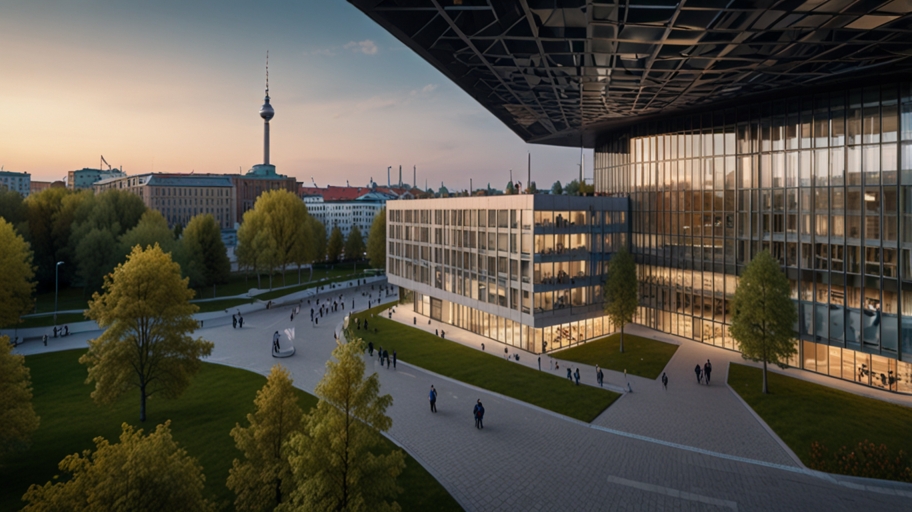Berlin is the center of Europe’s health development this April. In the city, a number of high-level activities and projects have been provided as proof of Berlin’s willingness to make the health transformation through the provision of innovation, inclusivity, and global leadership. With health experts, policymakers, and technology pioneers coming together, the German capital has turned into a magnet, demanding that the future of healthcare be shaped there.
The city’s international standing was further reinforced by the World Health Summit. Key figures from politics, science, and civil society met at the summit to debate the important issue of taking responsibility for health in a fragmenting world. Caring for those in need during conflicts and ensuring that everyone is well was the content of the discussions on the need for joint collaborative solutions across all sectors and countries, regardless of borders.
DMEA 2025 confirmed Berlin as the main digital health hub by organizing a grand conference, which experts from around the world attended. The participants learned about the latest breakthroughs in artificial intelligence, patient data management, and cross-border healthcare collaboration after the event was over. The new AI Act triggered a hot debate among the professionals who were participants in the event, and also, the European Health Data Space was a point of discussion on how it could mean a major change to healthcare.
It has not only been the subject of digital innovation that was debated, but it was also a reality, evident in Berlin hospitals and clinics. The healthcare workers at local facilities introduced new telemedicine platforms and therapy chatbots, aiming to utilize them for the betterment of patient treatment, along with the benefit of more accessible healthcare. With digital tools at their service, a range of diseases can already put the people of Berlin in front of health professionals for consultation and personalized treatment planning.
During the Global Disability Summit, health equity became the main topic, and Berlin became the capital where the discussion was held with leaders, advocates, thinkers, and policymakers from around the world.
The summit reemphasized that the city had a clear commitment to the international goal of organizing health systems in a way that makes them more accessible and inclusive for the disabled population. The participants requested that the hindrances to care be addressed, that there be more representation in decision-making, and that universal design ideas be implemented.
At the Health Tourism Expo, a famous annual health tourism event originally held in Berlin, there was again enthusiasm for the health sector. The city’s leading hospitals and clinics were the ones to introduce international visitors to their substantial knowledge, thus reflecting the city’s ultimate desire to be considered the best place for high-quality medical and wellness services. The event showcased that Berlin was at the forefront of managing technology, had skilled professionals, and was focused on patients’ welfare.
The local environment was as crucial as the global environment during these times. The public health authorities of Berlin set up various programs to make people aware of vaccine campaigns, mental health, and healthy lifestyles. With local groups’ help, it was possible to reach the most vulnerable groups and make sure that health information and services reached the most remote corners of the city.
Not only health issues but also the cultural event in the city had a share of collaboration, for example, the Easter morning concert staged at Französische Friedrichstadtkirche. Such congregations were a means to depict the significance of social cohesion and mental health to a faster-changing world. As importantly, they provided moments of reflection and possibilities for communities and each other to bond.
Berlin’s politicians highlighted the importance of sustainable health financing and the development of the health workforce. The announcement was made about investment in the training and retention of healthcare workers, and the focus on professionals to acquire skills needed to deal with digital transformation and demographic shifts.
Since the city of Berlin was doing its part to reduce air pollution and encourage green spaces, environmental health was still at the top of the list. The initiatives in urban planning were designed to create healthier neighborhoods, besides making use of new transportation systems and public parks as the main focus of residents’ daily activities.
From a global perspective, Berlin was repeatedly mentioned as the link between the European and global health agendas, and the city’s politicians expressed their readiness to extend the support of research partnerships, knowledge exchange, and collective responses of the global community to health challenges.
Furthermore, the potential of Berlin’s health sector is huge, and there will be a lot of innovation in the coming years. The combination of traditional and modern aspects, as well as its open and inclusive spirit, makes Berlin an urban health model for Europe and the world. As the month of April comes to an end, Berlin holds the torch of progress, resilience, and hope in the pathway to a good way to health for all.
